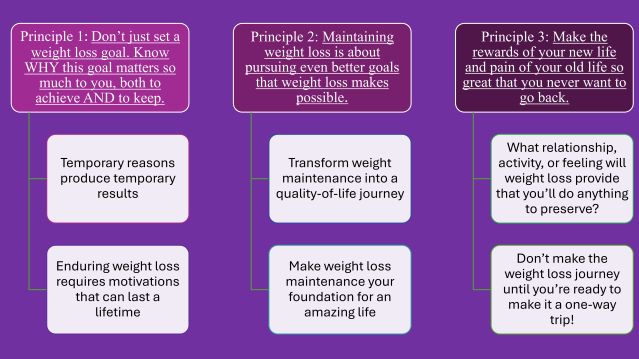The journey to a healthy relationship with food and body image is deeply personal, yet often influenced by external perceptions. Well-meaning comments about weight, while seemingly innocuous or even complimentary, can inadvertently trigger and exacerbate disordered eating behaviors by implicitly linking an individual's self-worth to their physical appearance. Healing involves recognizing these subtle triggers, actively challenging ingrained societal norms, and cultivating a supportive environment focused on holistic well-being rather than superficial physical changes. This article delves into the profound impact of such comments and offers a pathway to recovery and a healthier self-perception.
The Problem: Early Body Shaming and the Onset of Disordered Eating
My personal battle with disordered eating began at the tender age of eight. It started subtly, with skipped breakfasts and the elimination of certain foods, but quickly escalated into prolonged periods of fasting. I internalized a dangerous belief: the less I ate, the more weight I would lose, and consequently, the more valued I would become. This early experience set the stage for years of struggle.
By my teenage years, thoughts about food, diets, and body image consumed my every waking moment. Every hour of every day was dominated by anxieties about what I had eaten, what I was planning to eat, how my body looked, and how I measured up against others. From the societal ideals of thigh gaps and flat stomachs to personal insecurities about hip dips and arm jiggles, each body part became a focal point of my obsession. This intense preoccupation with appearance and food is not unique to my experience. A 2023 systematic review highlighted the alarming prevalence of disordered eating, reporting that 22% of children and adolescents globally struggle with these issues, with a significantly higher proportion (30%) observed among girls (Research, 2023). This statistic underscores the widespread nature of the problem, indicating that many young individuals are silently battling similar internal struggles, often unbeknownst to those around them. The pervasive nature of these issues makes understanding the triggers, such as seemingly innocent remarks, all the more critical.
The Challenge: The Deceptive Nature of Weight Loss Compliments
Growing up in an Asian family, I was accustomed to blunt observations about physical appearance. Relatives would often remark on my perceived chubbiness, thickness, or stockiness, openly comparing me to my sisters and cousins. These comments, though perhaps not intended maliciously, reinforced a narrative that my body was inherently unattractive. The constant scrutiny became a normal, albeit painful, part of my reality.
Then, in ninth grade, an unexpected turn of events shifted this narrative. A severe case of bronchitis during winter break led to significant, unintentional weight loss. What followed was a flood of praise and attention, a stark contrast to the criticisms I had previously endured. My auntie exclaimed to my mother, "Your daughter has lost a lot of weight. She looks so beautiful and skinny now. What's her secret?" An uncle casually remarked, "She used to be the big one, but now she is just as pretty as her other sisters." Even my parents, with genuinely good intentions, encouraged me to maintain the weight loss, offering to monitor my eating and expressing pride in my "health journey." These well-meaning comments weight loss sparked a powerful, yet dangerous, sense of validation.
Initially, I loved the attention. Their words made me feel beautiful and seen in a way I hadn't before. I believed they had good intentions, aiming to motivate me to stay healthy. From my perspective, they were being helpful, right? Kathleen Garcia-Benson, RDN, CSSD, LD, NASM-CPT, NBC-HWC, a registered dietitian specializing in women's health and sports nutrition, explains that culturally, weight loss is often viewed as an inherently positive achievement, making compliments a natural, almost automatic, response. This mindset is deeply rooted in a societal norm that equates weight loss with improved health, success, and self-discipline, often without considering the methods or costs involved. Imagine a friend posting a "before and after" photo online, only to receive an influx of "you look so much healthier!" comments, unknowingly validating a period of stress-induced weight loss or an unhealthy diet. This widespread cultural belief perpetuates a cycle where external validation becomes tied to physical appearance, making it incredibly challenging for individuals to develop an intrinsic sense of self-worth independent of their body size.
The Cycle of Failures: Pressure to Stay Thin and Extreme Measures
The initial euphoria from the compliments was short-lived. I was thrilled to return to school, eager to show off my "new body" to friends and classmates. I bought new clothes, shoes, and accessories, meticulously planning outfits for the week, basking in the newfound attention. However, as the months progressed, the reality of maintaining that weight became increasingly difficult. My bronchitis was long gone, and with it, my normal appetite returned. The pressure to sustain the weight loss, fueled by those early well-meaning comments weight praise, became immense.
Inevitably, I slowly returned to my original weight. My new jeans no longer fit comfortably, and the coveted thigh gap disappeared. The devastation was profound. I felt an overwhelming sense of failure, as if I had let down everyone who had praised me and rooted for my "transformation." This immense pressure to maintain an unhealthy body size pushed me towards increasingly extreme measures. I began experimenting with laxatives and diet pills, desperate to regain control over my body and reclaim the validation I had briefly experienced. When my hunger became uncontrollable, I would binge on large quantities of food, only to be overcome with disgust and force myself to vomit. Every time I "broke" one of my strict food rules, I would punish myself with hours of intense exercise or endure grueling water fasts. This relentless cycle of restriction, bingeing, and purging inflicted severe physiological and psychological damage, highlighting the insidious nature of how external validation can corrupt one's relationship with their body and food (Research, 2015).
Kathleen Garcia-Benson insightfully notes that "Many people spend years cycling through diets, striving for weight loss that may not be sustainable." This constant pursuit of an elusive ideal often leads to an unhealthy relationship with food, where chronic dieting fosters a harmful pattern of restriction followed by overeating, rather than promoting a balanced and sustainable approach to nourishment. The internal "failures" I experienced were not simply a lack of willpower, but a direct consequence of a system that praises fleeting, often unhealthy, weight loss while ignoring the underlying psychological toll. The societal pressure, reinforced by those initial compliments, created a trap from which escaping proved incredibly challenging, leading to a deep sense of shame and isolation.
Unpacking the Root Cause: Societal Weight Stigma and Harmful Reinforcement
The impact of well-meaning comments weight extends far beyond surface-level compliments; they contribute to a pervasive societal issue known as weight stigma. Lindsey Cope, LCSW, an Atlanta-based therapist specializing in eating disorders, anxiety, and body image, emphasizes that praising weight loss can be particularly detrimental for individuals recovering from an eating disorder. Such comments can be highly triggering, leading to urges to revert to unhealthy behaviors and intensifying feelings of self-consciousness, shame, and guilt. "When we praise weight loss," Cope explains, "we’re reinforcing weight stigma, which harms people in all sized bodies by setting thinness as the ultimate goal." This normalization of thinness as the pinnacle of health and beauty creates an impossible standard, making anyone outside this narrow ideal feel inadequate.
Garcia-Benson further elaborates that compliments on weight loss can unintentionally exert immense pressure on an individual to continue losing or to maintain that specific weight, even if doing so is unhealthy or unsustainable for their body. This external validation, particularly from trusted family members or friends, can overshadow other crucial aspects of health. The focus on weight can detract from mental well-being, physical strength, emotional resilience, and overall life satisfaction, reinforcing a narrow and often damaging view of what it truly means to be healthy. Consider a child overhearing adults at a family gathering praise a relative for losing weight, then subtly criticize another for gaining. This seemingly innocuous conversation can plant seeds of self-consciousness and fear of judgment in young minds, shaping their body image from an early age.
Ny'l Thompson, LCSW-C, MS, a licensed therapist based in Houston, Texas, and Maryland, specializing in ADHD, anxiety, depression, and self-esteem, explains that comments about someone’s body, even when well-intended, often stem from a desire to be supportive or to share perceived positive observations. However, while the person commenting might initially feel good about what they’ve said, it can inadvertently contribute to body image issues or establish unrealistic standards for the recipient. For those with a history of disordered eating, comments on their body can trigger unhealthy thought patterns and behaviors, reinforcing harmful cycles and making recovery significantly more difficult (Health Organization, 2024). These comments can severely impact mental health, exacerbating struggles like anxiety, depression, or body dysmorphia, especially for individuals who have learned to tie their self-worth to their appearance. In 2025, with social media filters and curated online personas amplifying the pressure to conform to narrow beauty standards, the impact of well-meaning comments weight is even more potent, perpetuating a cycle of comparison and self-criticism.
Proven Solutions: Fostering a Healthier Body Image Beyond Appearance
The path to healing from the profound impact of well-meaning comments weight requires a fundamental shift in perspective and communication. Instead of focusing on physical appearance, we must consciously redirect our attention and praise towards intrinsic qualities, achievements, and efforts. As Ny'l Thompson advises, "Shifting the focus to personal qualities, achievements, or efforts instead of appearance can help foster a healthier self-image and reduce the risk of negative mental health effects." This means actively seeking out and acknowledging attributes like kindness, intelligence, resilience, creativity, and compassion. For instance, instead of remarking on a colleague's weight loss, consider praising their dedication to a challenging project or their insightful contributions in meetings. This shifts the focus to their competence and character, reinforcing their value beyond physical appearance.
For individuals navigating their healing journey, setting clear boundaries is crucial. This might involve politely but firmly letting loved ones know that comments about your body, positive or negative, are not helpful or welcome. It takes courage, but establishing these boundaries protects your mental and emotional well-being. Practicing self-compassion is also vital; recognizing that your worth is inherent and not dependent on your body size or external validation is a powerful step. Engaging in activities that promote body neutrality or body positivity, such as mindful movement, journaling, or connecting with supportive communities, can help reframe your relationship with your body.
Furthermore, society as a whole needs to reconsider its ingrained habit of commenting on bodies. We must challenge the cultural narrative that equates thinness with health and success. This involves educating ourselves and others about weight stigma and the harm it inflicts. If you find yourself wanting to compliment someone, pause and reflect: Is there a non-appearance-based quality you admire? Perhaps their strength in overcoming a challenge, their sense of humor, their thoughtful listening skills, or their vibrant energy. These types of compliments are genuinely uplifting and reinforce a person's value for who they are, not just how they look. If you truly cannot find anything nice to say that isn't about appearance, it's often best to say nothing at all. This mindful approach to communication is a powerful solution in cultivating a more inclusive and body-positive environment for everyone.
The Ongoing Timeline of Healing and Sustainable Recovery
My personal journey to heal my relationship with food and my body has spanned decades, a testament to the enduring power of external influences and the resilience required for recovery. This process has demanded immense self-reflection, consistent effort, and, most importantly, unwavering support from therapists, friends, and family who understand the complexities of disordered eating. Recovery is rarely a linear path; it involves continuous learning, unlearning, and reaffirming one's self-worth, even when faced with old triggers.
Even after years of progress, comments about people’s bodies, even when not directed at me, still carry a lingering impact. They serve as potent reminders of the deeply ingrained beliefs that once held me captive and can transport me back to my vulnerable, troubled 14-year-old self. This experience is common for many individuals in recovery; the echoes of past criticisms or even seemingly positive remarks about weight can trigger old thought patterns. Whether it's a comment about someone’s height, weight loss, weight gain, skin, hair, teeth, or nails, these words often carry a deeper, more insidious impact than the speaker intends. For those with a history of disordered eating, such comments can reactivate unhealthy thought patterns and behaviors, reinforcing harmful cycles and making the already challenging path to recovery even more arduous (Psychology Today, 2024).
These external observations can significantly impact mental health, exacerbating struggles such as anxiety, depression, or body dysmorphia, particularly for those who have learned to tie their self-worth directly to their physical appearance. The timeline of healing is not about reaching a definitive end point, but rather about developing robust coping mechanisms, cultivating self-compassion, and building a strong internal foundation of self-acceptance. It's about recognizing that every day offers an opportunity to reinforce healthier beliefs and to challenge the societal pressures that seek to define us by our bodies. The ongoing commitment to recovery involves continuous self-care, seeking professional guidance when needed, and surrounding oneself with individuals who champion holistic well-being over superficial aesthetics. This continuous process ensures that while the journey may be long, it ultimately leads to a more peaceful and authentic relationship with oneself.
Frequently Asked Questions About Body Comments
Q: Why are comments about weight loss harmful if they're positive?
A: While seemingly positive, comments about weight loss can be harmful because they reinforce the societal idea that thinness is inherently good and equates weight with health or self-worth. For individuals with a history of disordered eating, these well-meaning comments weight loss can trigger unhealthy behaviors, create pressure to maintain an unsustainable body size, and overshadow other vital aspects of their overall well-being and mental health.
Q: How can I respond to well-meaning comments about my weight without being rude?
A: You can respond by setting a clear boundary respectfully. For example, you might say, "I appreciate your concern/compliment, but I'm working on focusing on my health in ways that aren't about my weight, so I'd prefer not to discuss it." Or, "My body is not a topic I'm comfortable discussing." This communicates your boundary while acknowledging their intent.
Q: What should I compliment instead of someone's physical appearance?
A: Focus on a person's character, achievements, skills, or efforts. You could praise their intelligence, kindness, resilience, creativity, sense of humor, leadership skills, or dedication to a project. These compliments validate their intrinsic worth and contributions, fostering a healthier self-image that isn't tied to physical appearance.
If you or a loved one are coping with an eating disorder, contact the National Eating Disorders Association (NEDA) Helpline for support at 1-800-931-2237.
For more mental health resources, see our National Helpline Database.
3 Sources
Verywell Mind uses only high-quality sources, including peer-reviewed studies, to support the facts within our articles. Read our editorial process to learn more about how we fact-check and keep our content accurate, reliable, and trustworthy.
- López-Gil JF, García-Hermoso A, Smith L, et al. Global Proportion of Disordered Eating in Children and Adolescents: A Systematic Review and Meta-analysis. JAMA Pediatrics. 2023;177(4). doi:10.1001/jamapediatrics.2022.5848 (Research, 2023)
- Ortega-Luyando M, Alvarez-Rayón G, Garner DM, Amaya-Hernández A, Bautista-Díaz ML, Mancilla-Díaz JM. Systematic review of disordered eating behaviors: Methodological considerations for epidemiological research. Revista Mexicana de Trastornos Alimentarios. 2015;6(1):51–63. doi:10.1016/j.rmta.2015.06.001 (Research, 2015)
- Canadian Paediatric Society. Dieting in adolescence. Paediatrics & child health. 2004;9(7):487–503.











